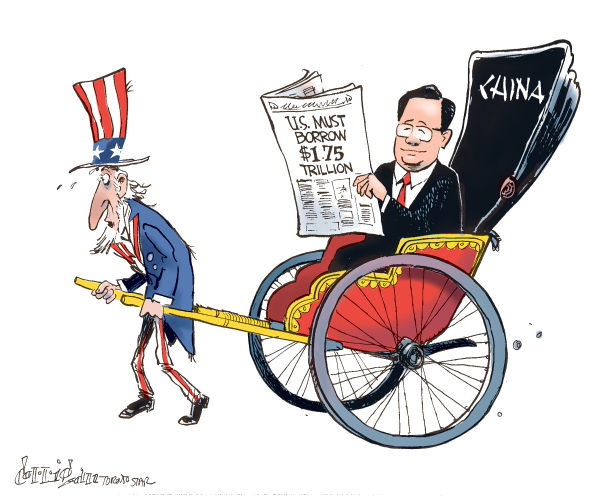SCOTUS To Soon Hear Trump's Arguments in Trump-vs-Mazars and Trump-vs-Deutsche Bank
What folows should concern every American patriot that believes the powersof the President should be limited. That his function is to insure the will of the people of the USA, through their elected representatives AND the rule of law is properly administered. Conservative writer David Frum puts forth invaluable observations for us to consider.
Sometime before June 29, 2020, the U.S. Supreme Court will either plunge the United States into the severest constitutional crisis of the Trump years—or save Americans from that crisis.
Three different committees of Congress, as well as New York State prosecutors, have issued subpoenas to President Donald Trump’s accountants and bankers for his tax and business records. Trump has sued to stop the accountants and bankers from complying. He has lost twice at the district-court level and twice at the appeals-court level. Now he is looking to the conservative majority on the Supreme Court to rescue him.
On March 31, the court will hear oral arguments in the cases of Trump v. Mazars and Trump v. Deutsche Bank. The decision will be rendered sometime between then and the court’s summer break.
Although Trump is suing his accountants and his bankers as a private citizen, his case has been joined by the Department of Justice. Solicitor General Noel Francisco has signed an amicus brief on behalf of the United States. It is an astonishing document. It invites the Supreme Court to junk two centuries of precedent—and to substitute an entirely new system of judicial review of congressional subpoenas that involve a president.
A legislative subpoena must therefore satisfy heightened requirements when it seeks information from the President. At the threshold, the full chamber should unequivocally authorize a subpoena against the President. Moreover, the legislative purpose should be set forth with specificity. Courts should not presume that the purpose is legitimate, but instead should scrutinize it with care. And as with information protected by executive privilege, information sought from the President should be demonstrably critical to the legislative purpose. A congressional committee cannot evade these heightened requirements merely by directing the subpoena to third-party custodians, for such agents generally assume the rights and privileges of their principal, as this Court has recognized in analogous cases.
All the requirements in that above paragraph were devised for purposes of this litigation. None of them has ever been enforced—none of them has ever been imagined—in the previous 230 years of skirmishing between Congresses and presidents. Every must and should and cannot was invented in this very brief, for the immediate legal purposes of this president in this dilemma. The solicitor general might as well have said that subpoenas must be delivered by a sled pulled by flying reindeer, for all the connection between these demands and the previous constitutional history of the United States.
As the House of Representatives noted in the brief it filed, previous Congresses have obtained the bank records of Presidents Andrew Johnson and Jimmy Carter, and the tax records of President Richard Nixon. They have read the diaries of President Ronald Reagan and the law-firm billing records of first lady Hillary Clinton.
It’s never before been the law that a subpoena of the president must be authorized by “the full chamber,” much less that this authorization be “unequivocal”—whatever that means.
It’s never before been the law that the president’s privileges—whatever they are—also extend to his private business agents.
It’s never before been the law that the courts set themselves over Congress as scrutinizers of its subpoenas, approving or disapproving. Until now, instead, courts have always extended the utmost deference to congressional investigations, from the first Washington administration onward.
The Trump administration cannot cite case law for any of its new demands. It quotes few cases, very briefly and tangentially, and strikingly often with ellipses in the middle of the quote. Instead, it bases its argument on its own vision of the awesome and unassailable power of the presidency...
What is most troublesome are these words from the above... it bases its argument on its own vision of the awesome and unassailable powers of the president.
Article continues BELOW the FOLD.





Comments
Post a Comment
RN USA is a No Judgement Zone (to steal from Planet Fitness), so please, No Judgement of others. We reserve the right to delete any such comment immediately upon detection.
All views are welcome. As long as the comment is on topic and respectful of others.